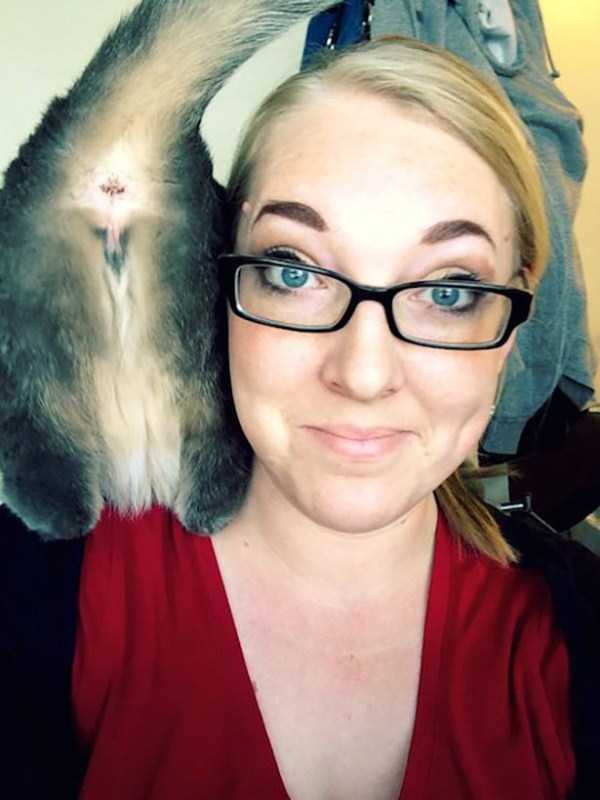Relax: Methods for Lowering Respiratory Health Threats from the Litter Box
Relax: Methods for Lowering Respiratory Health Threats from the Litter Box
Blog Article

Feline owners are no complete strangers to the day-to-day chore of digging their furry buddy's litter box. It's a regular task that's typically overlooked, yet vital for maintaining a tidy and healthy environment for both felines and their human companions. Nevertheless, what many animal owners might not realize is that there are concealed health threats connected with the litter box that can posture dangers to both people and felines alike. From respiratory problems to parasitic infections, the litter box can harbor a range of threats that require cautious attention and management.
Among the most common health risks connected with the litter box is breathing issues. Cat litter, particularly clay-based ranges, can contain fine dust particles that become air-borne when interrupted during scooping or when cats dig in the litter. These dust particles can be inhaled by both felines and human beings, leading to respiratory irritation and intensifying conditions such as asthma or allergic reactions. In many cases, prolonged exposure to litter dust can even cause more serious breathing issues in both felines and their owners.
To decrease respiratory risks, it's vital to select low-dust or dust-free litter alternatives and to scoop the litter box in a well-ventilated location. Using a dust mask while cleaning up the litter box can likewise help in reducing exposure to airborne particles, particularly for individuals with respiratory sensitivities.
Another considerable health danger connected with the litter box is the potential for parasitic infections, particularly from Toxoplasma gondii, a common parasite found in cat feces. While many healthy individuals may not experience symptoms if infected, pregnant women and individuals with weakened immune systems are at higher risk of establishing extreme issues, consisting of abnormality and neurological conditions.
To lessen the danger of parasitic infections, pregnant ladies must avoid cleaning the litter box altogether and delegate this job to another family member. In addition, all people must practice great hygiene habits, consisting of cleaning hands completely after dealing with the litter box or entering contact with cat feces, to reduce the threat of transmission.
Lots of industrial cat litters contain chemicals and ingredients that can present health dangers to both cats and human beings. For instance, some aromatic litters may contain scents or vital oils that can irritate sensitive breathing systems or set off allergies. Additionally, clumping litters typically include sodium bentonite, a clay product that can broaden when ingested, leading to intestinal obstructions if consumed by felines.
To lessen chemical exposure, choose odorless or naturally-scented litters made from biodegradable products such as paper, wood, or plant-based options. These environmentally friendly options are not just much safer for your Self Cleaning Litter Boxes feline's health however also much better for the environment.
The litter box environment offers a perfect breeding place for bacteria, consisting of potentially damaging pathogens such as E. coli and Salmonella. These bacteria can infect the litter box and surrounding locations, increasing the threat of infection for both cats and human beings. Cats can contract bacterial infections through direct contact with contaminated litter or by ingesting feces throughout grooming, while people can end up being cat litter box infected through contact with infected surfaces or poorly washed hands.
To lower the danger of bacterial contamination, it's essential to clean up the litter box regularly using warm water and mild cleaning agent, as well as to decontaminate the surrounding area to prevent the spread of bacteria. In addition, practicing great hand health, including cleaning hands completely after dealing with the litter box or entering into contact with cat feces, can assist decrease the danger of bacterial transmission.
While the litter box might appear like a mundane element of cat ownership, it's important to acknowledge the potential health dangers connected with this apparently innocuous fixture. From respiratory problems to parasitic infections and bacterial contamination, the litter box can harbor a range of risks that need mindful attention and management. By taking proactive measures to lessen direct exposure to these risks, cat owners can produce a more secure and cat litter box furniture much healthier environment for both their feline companions and themselves.